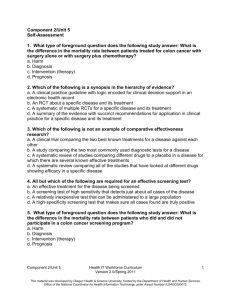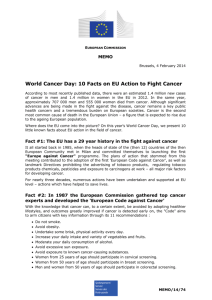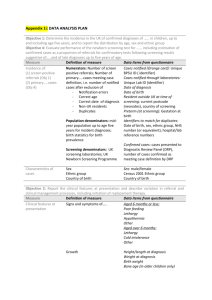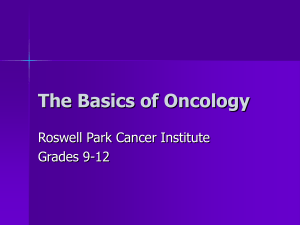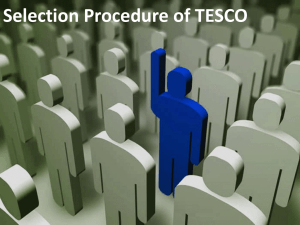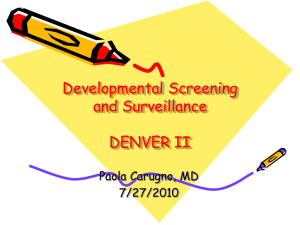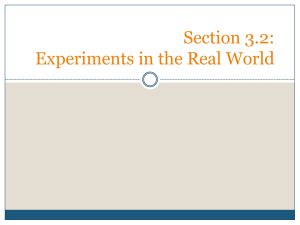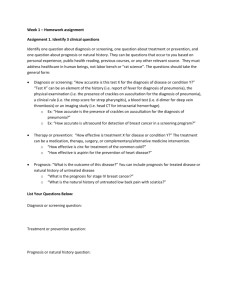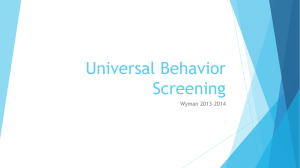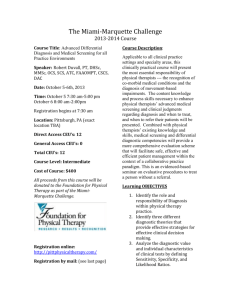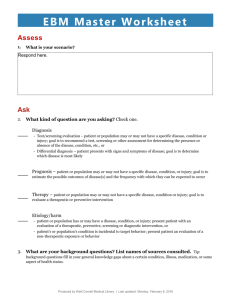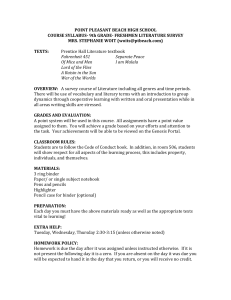Instructor`s Guide for ICD-9-CM Diagnostic Coding and
advertisement
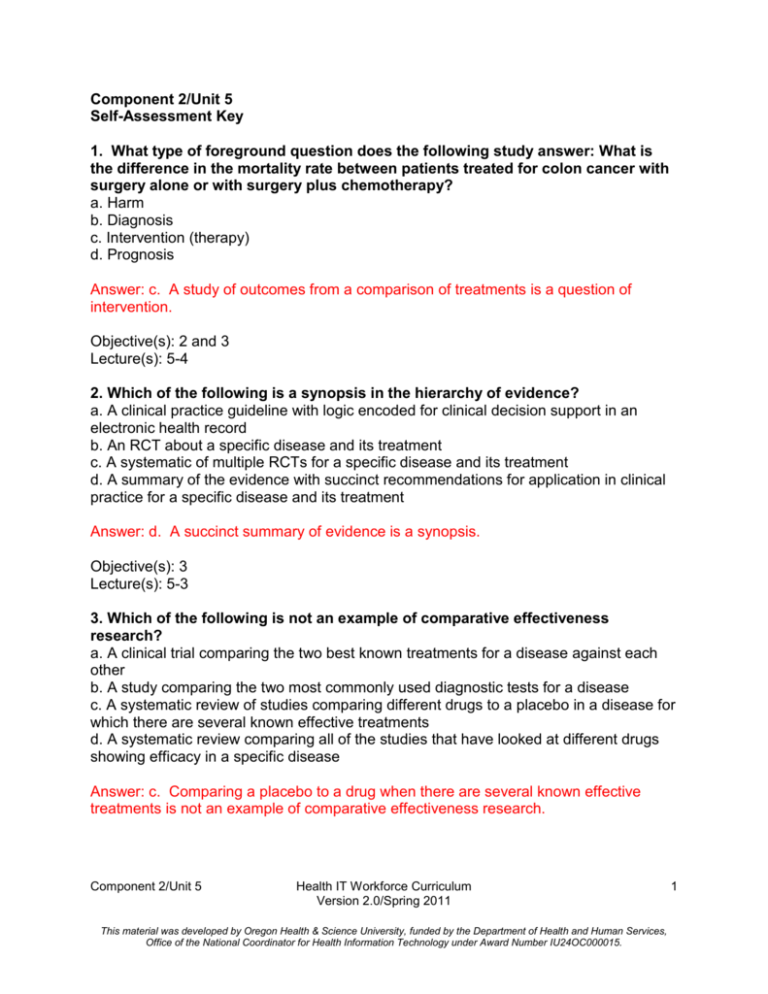
Component 2/Unit 5 Self-Assessment Key 1. What type of foreground question does the following study answer: What is the difference in the mortality rate between patients treated for colon cancer with surgery alone or with surgery plus chemotherapy? a. Harm b. Diagnosis c. Intervention (therapy) d. Prognosis Answer: c. A study of outcomes from a comparison of treatments is a question of intervention. Objective(s): 2 and 3 Lecture(s): 5-4 2. Which of the following is a synopsis in the hierarchy of evidence? a. A clinical practice guideline with logic encoded for clinical decision support in an electronic health record b. An RCT about a specific disease and its treatment c. A systematic of multiple RCTs for a specific disease and its treatment d. A summary of the evidence with succinct recommendations for application in clinical practice for a specific disease and its treatment Answer: d. A succinct summary of evidence is a synopsis. Objective(s): 3 Lecture(s): 5-3 3. Which of the following is not an example of comparative effectiveness research? a. A clinical trial comparing the two best known treatments for a disease against each other b. A study comparing the two most commonly used diagnostic tests for a disease c. A systematic review of studies comparing different drugs to a placebo in a disease for which there are several known effective treatments d. A systematic review comparing all of the studies that have looked at different drugs showing efficacy in a specific disease Answer: c. Comparing a placebo to a drug when there are several known effective treatments is not an example of comparative effectiveness research. Component 2/Unit 5 Health IT Workforce Curriculum Version 2.0/Spring 2011 This material was developed by Oregon Health & Science University, funded by the Department of Health and Human Services, Office of the National Coordinator for Health Information Technology under Award Number IU24OC000015. 1 Objective(s): 4 Lecture(s): 5-6 4. All but which of the following are required for an effective screening test? a. An effective treatment for the disease being screened b. A screening test of high sensitivity that detects just about all cases of the disease c. A relatively inexpensive test that can be administered to a large population d. A high-specificity screening test that makes sure all cases found are truly positive Answer: d. Important for an initial screening test are that the test be low cost and high sensitivity for a disease that has effective treatments. Objective(s): 1 Lecture(s): 5-1 5. What type of foreground question does the following study answer: What is the difference in the mortality rate between patients who did and did not participate in a colon cancer screening program? a. Harm b. Diagnosis c. Intervention (therapy) d. Prognosis Answer: c. A study of outcomes from a screening test is a question of intervention. Objective(s): 2 and 3 Lecture(s): 5-4 6. A study using tests for the presence of multiple genes in a patient to determine disease is best described as what kind of clinical study? a. Randomized controlled trial b. Clinical prediction study c. Cohort study d. Case control study Answer: b. A study that uses multiple tests to predict a clinical diagnosis is called a clinical prediction study. Objective(s): 2 and 3 Lecture(s): 5-4 Component 2/Unit 5 Health IT Workforce Curriculum Version 2.0/Spring 2011 This material was developed by Oregon Health & Science University, funded by the Department of Health and Human Services, Office of the National Coordinator for Health Information Technology under Award Number IU24OC000015. 2
